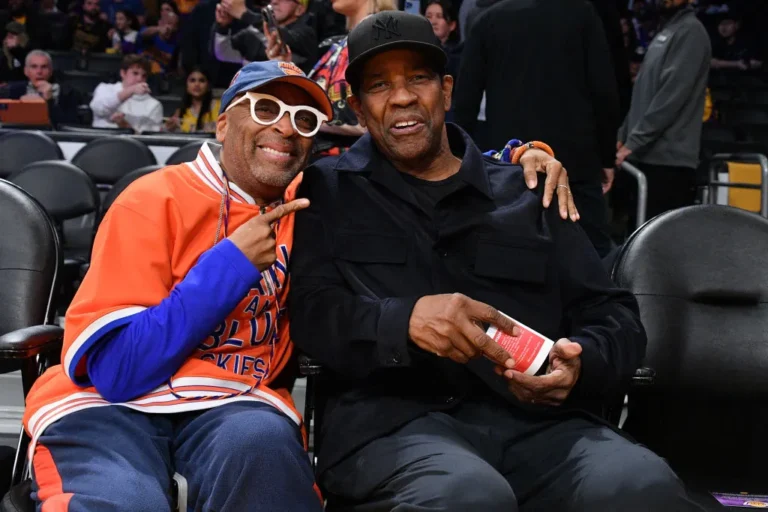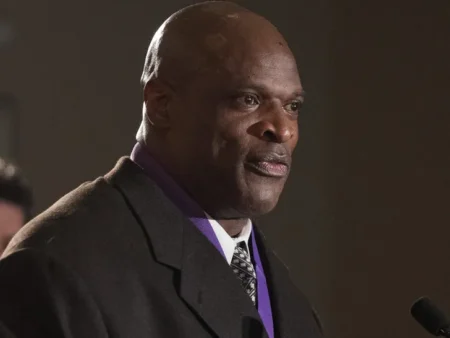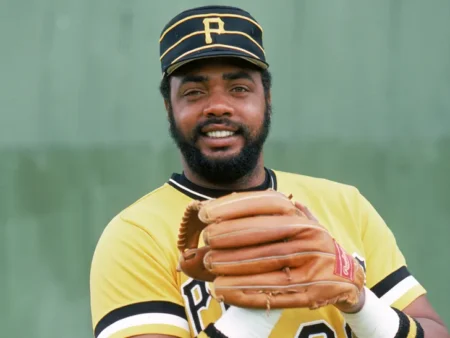Spike Lee’s He Got Game (1998) remains an iconic film that continues to shape conversations about Black identity, ambition, and the collision of family dynamics with the world of professional sports. Starring Denzel Washington and NBA legend Ray Allen, the film struck a perfect balance between the gritty realities of basketball and a powerful narrative about the human condition. At the center of it all was the character of Jesus Shuttlesworth, a highly sought-after high school basketball prodigy navigating the cutthroat world of college recruitment, while trying to mend his fractured relationship with his estranged father.
When He Got Game debuted, it resonated deeply with audiences not only for its compelling story but also for its seamless integration of basketball culture into the cinematic narrative. Denzel Washington’s nuanced performance as the hard-edged, guilt-ridden father Jake Shuttlesworth and Ray Allen’s portrayal of Jesus became integral to the film’s emotional gravity. However, Lee’s recent revelation on The Jim Jackson Show about the casting process of Jesus has sparked a fresh wave of debate and speculation about what the film could have been with other basketball stars in the lead role.
Initially, Lee had envisioned two of the NBA’s most electrifying and influential players at the time—Allen Iverson and Kobe Bryant—taking on the role of Jesus. The revelation that these two basketball icons were considered for the role before Ray Allen entered the scene invites a fascinating re-examination of how their real-life personalities and off-court identities might have influenced the film’s tone and themes. Let’s take a deeper look at how these early casting choices could have altered the film’s legacy.
Allen Iverson: The Rebellious Choice
In 1998, Allen Iverson was already an emerging star in the NBA, known for his ferocious playing style and unapologetic persona. As one of the most controversial yet beloved figures in basketball history, Iverson’s authenticity and raw energy made him an ideal candidate for the role of Jesus Shuttlesworth. Spike Lee, known for his interest in cultural rebels and boundary-pushing figures, saw a kindred spirit in Iverson. At the time, Iverson was not only dominating the courts but also had a magnetic presence that resonated with young people who felt disconnected from traditional norms. His energy, charisma, and unique sense of style made him the perfect embodiment of the character’s struggle against the pressures of fame, recruitment, and family obligations.
However, despite the initial interest, Iverson ultimately turned down the role. As Lee later revealed, Iverson’s lack of acting experience and his full commitment to his NBA career made it unfeasible for him to take on the demanding role of Jesus. The decision was understandable—Iverson was in the midst of an NBA career that would soon make him a household name. His refusal to abandon his first love, basketball, for a career in acting ensured that the He Got Game casting process would continue, eventually leading Lee to look elsewhere.
Kobe Bryant: The Polished Prodigy
Another iconic basketball player that Lee initially envisioned for the role of Jesus was Kobe Bryant, who, by the late ’90s, had already begun to establish himself as one of the greatest basketball players of his generation. Unlike Iverson, who was known for his rebellious streak and defiance of conventional norms, Bryant represented a more polished, focused, and disciplined version of the athlete. Even in his teenage years, Bryant’s maturity and poise set him apart from his peers, making him a compelling candidate to play Jesus Shuttlesworth, a young man caught between the allure of fame and the weight of familial expectations.
Spike Lee admired Kobe Bryant’s understanding of fame and the intense pressures that come with it. Bryant, who would go on to win five NBA championships, already had a sense of the complexity that comes with stardom—something Lee believed would translate well to the film’s portrayal of a young athlete being thrust into a world that would ultimately exploit his talents. However, like Iverson, Bryant turned down the role in favor of focusing on his basketball career. Though his decision was rooted in his commitment to the NBA, it marked the second major casting loss for Lee.
Ray Allen: The Surprising Choice That Redefined the Role
With both Iverson and Bryant unavailable, Lee turned to Ray Allen, then a rising star in the NBA, to take on the role of Jesus Shuttlesworth. Allen, while still relatively untested as an actor, brought a different kind of strength to the role. Unlike Iverson’s fiery energy or Bryant’s poised professionalism, Allen’s performance as Jesus was defined by a quiet, understated strength. The decision to cast Allen, who had not yet reached the level of superstardom that Bryant and Iverson had achieved, could have seemed like an unconventional choice at the time, but it turned out to be the film’s defining factor.
Ray Allen’s portrayal of Jesus Shuttlesworth was layered with emotional depth. While his on-court finesse was apparent, it was his vulnerability, introspection, and the quiet intensity he brought to the character that made Jesus feel fully realized. His portrayal of a young athlete struggling to balance personal desires, family expectations, and the world of collegiate recruitment resonated with audiences on a deeply emotional level. Allen’s performance was nuanced, allowing the audience to connect with Jesus’ internal conflict in a way that might have been difficult to achieve with Iverson or Bryant.
The father-son dynamic between Allen’s Jesus and Denzel Washington’s Jake Shuttlesworth became the emotional heart of the film. Their scenes, which alternated between tense confrontations and poignant moments of quiet understanding, offered an emotional weight that transcended the sports genre. Washington’s powerful portrayal of a man seeking redemption while trying to reconnect with his son complemented Allen’s quieter, more introspective performance. Together, they brought the complex father-son relationship to life in a way that remains one of the most memorable aspects of the film.
He Got Game and Its Enduring Legacy
More than two decades after its release, He Got Game still holds immense cultural significance. It is not only a commentary on the exploitation of young Black athletes in the college and professional sports systems but also a poignant exploration of family, identity, and the American dream. While the speculation surrounding what the film would have been like with Iverson or Bryant in the lead role will always remain a fascinating “what-if,” Ray Allen’s performance as Jesus Shuttlesworth has cemented his place in film history as an athlete-turned-actor who made the transition with extraordinary grace.
The film’s exploration of the commercialization of Black talent, the commodification of young athletes, and the tensions within family structures continues to resonate today. The issues raised in He Got Game—exploitation, fame, family tension, and personal choice—are just as relevant now as they were when the film was released.
Conclusion: The Unexpected Choice That Defined a Film
Spike Lee’s revelation about the casting of He Got Game serves as a reminder that sometimes, the right choice is the one that’s unexpected. While Iverson and Bryant would go on to shape the world of basketball and culture in indelible ways, it was Ray Allen’s quiet storm of a performance that ultimately defined the film. In the world of basketball, there are legends, and then there are performances that transcend the sport. Allen’s portrayal of Jesus Shuttlesworth remains one of the rare examples of an athlete stepping seamlessly into the world of cinema—where the result is not only believable but unforgettable.
He Got Game endures not only as a basketball film but as a cultural touchstone, and Ray Allen’s performance stands as a testament to the power of unexpected casting decisions. The story of He Got Game will continue to be discussed, re-examined, and admired, and Ray Allen’s portrayal of Jesus Shuttlesworth will forever stand as one of the finest moments in cinematic history.








